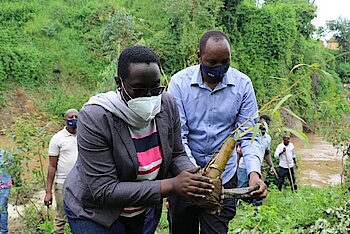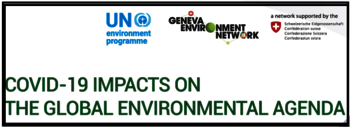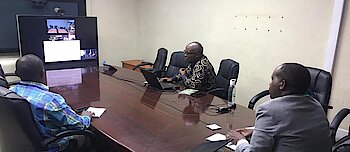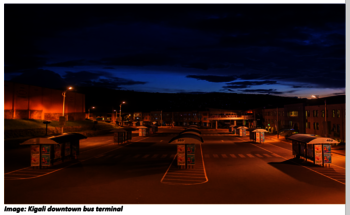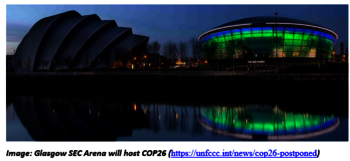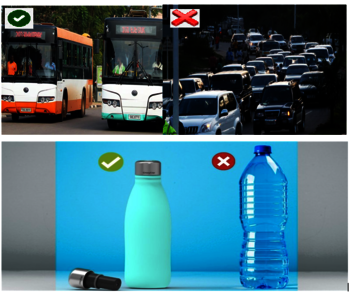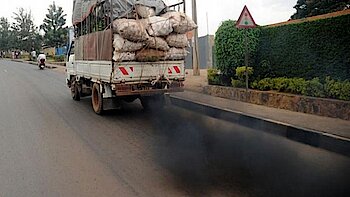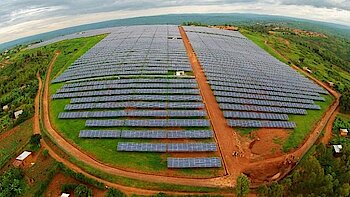
REMA AND HIGHER LEARNING INSTITUTIONS AGREED TO ENHANCE PARTNERSHIP IN ENVIRONMENT AND CLIMATE CHANGE RESEARCH
As part of the “World Environment Day Celebrations”, Rwanda is holding its annual National Environment Week. The week begun on Saturday 28 May by the community work known as “Umuganda” and will run upto 5th June 2022. As part of the “National Environment Week”, today, REMA in partnership with University of Rwanda (UR) College of Science and Technology, gathered senior management representatives from public and private higher learning institutions to share with them findings of the 6th State of Environment Report and Outlook (SoER).
The National Environment Week activities also include dissemination of Rwanda’s first Biennial Update Report under the United Nations Framework Convention on Climate Change (UNFCCC) 2021 and the 6th State of Environment Report and Outlook in Higher Learning Institutions. We will also hold a joint inspection between RAPEP in mining and Debriefing and a presentation on Bond Calculator. It is also planned to conduct an exchange field visit engaging Civil Society, NGOs with Environment and Climate change projects funded by RGB, and World Environment Day Celebrations. The main objective of this workshop is to disseminate the findings of the State of Environment Report and engage the academia for a productive exchange, regarding research needs and opportunities in Rwanda for environment and climate change.
“As the State of Environment Report and Outlook (SoER) report advises policy action, more real, appropriate action must be taken. That is why there was no better place to start this dissemination, other than universities and other higher learning institutions, to increase ownership and consolidation of data through research”. “How can the next State of Environment and Outlook report be generated by our own researchers? Is it possible that the next report refers to data generated from research carried out by the lecturers or students from our public and private higher learning institutions? “Added the Director General, Juliet KABERA.
On behalf of the Dean of the college of Science and technology, the acting Dean, Dr. Denis Ndanguza appreciated REMA for choosing to start with academia as a first stop to disseminate the 6th State of Environment Report and Outlook (SOER) report and share constructive ideas.
“This initiation to share information will help the higher learning community”, he said. “Lectures are good learners; we are going to be good ambassadors and increase innovative projects that can impact environment and climate change and increase knowledge on new concepts such as circular economy” - Dr. Denis Ndanguza.
After presenting findings in the 6th State of Environment Report and Outlook (SOER) report, senior Managers from public and private higher learning institutions provided recommendations and comments for gaps identified. Both REMA and higher learning institutions agreed on establishing stronger collaboration, start the conversation on mainstreaming environment and climate change into university curricula and improving the report by including business opportunities to each chapter. The senior representatives also appreciated REMA and its partners for the research support provided to them through grants; they requested that this collaboration continues as guided by the new task force.
Note to Editors
On January 5th 2018, the University of Rwanda signed a Collaborative Agreement with the Rwanda Environment Management Authority (REMA) to support postgraduate students conducting research for their masters’ theses. After affixing signatures to this agreement, the Center of Excellence in Biodiversity and Natural Resources Management (CoEB), College of Science and Technology took a lead to coordinate all related activities. Since then, students and supervisors have been benefiting from this partnership in different ways. So far, a total of sixteen masters’ from two UR Colleges (Colleges of Science and Technology and the College of Agriculture and Veterinary) and four different Masters programs; have been awarded grants under LAFREC
In addition, last year, REMA through the National Adaptation Planning Process (NAP) Project provided 50 fully-funded scholarships to 25 scholars and 25 lecturers of the University of Rwanda (UR) to conduct research on nature-based solutions that harness biodiversity and ecosystem services to reduce Rwanda’s vulnerability and build resilience to climate change.
END
Topics
More posts
Rwanda’s NAP Project funded by GEF was launched
The Global Environment Facility (GEF)-funded $6 million project “Building the capacity of Rwanda’s government to advance the National Adaptation…
Rwanda Pledges emissions cut of 38% in its climate action plan by 2030
Rwanda as a signatory to the Paris Agreement under which countries are due to update or communicate their 2030 emission-reduction plans, it submitted…
The Geneva Environment Dialogues discussed the impacts of the COVID-19 on the global climate change agenda
The dialogues took place on Tuesday 19 May, 2020 from 9: 00 to 9:50 on Facebook live, as way of communicating in this time of COVID-19.
this session…
Assessment of Rwanda’s vulnerability to climate change was presented to local authorities
Rwanda Environment Management Authority (REMA), with the logistical support of Ministry of Local Government (MINALOC), hold a video conference with…
Coronavirus responses proves the World can act on Climate Change
The COVID-19 pandemic has provoked a global response unlike anything we have seen before. Governments have witnessed transformational changes that…
COP 26 postponed due to the disruption caused by COVID-19
This crucial climate summit is the 26th session of conference of Parties (COP26) to the UNFCCC and it was scheduled from 9-19 November 2020 in…
Be self-accountable to tackle Climate Change and save environment
Climate change has already begun to impact our planet in more ways than we can think. Temperatures continue to rise throughout the planet and we are…
Switching to electric vehicles is a mean to reduce greenhouse gases emissions and improve air quality in the City of Kigali
Over the last 150 years, human activities have greatly contributed to the increase of greenhouse gases in the atmosphere, which make the planet…
Green Growth as an Opportunity for Business
Twenty-eight years after the Rio Summit, the countries embrace the vision for development by expanding the economy and addressing the environment…
